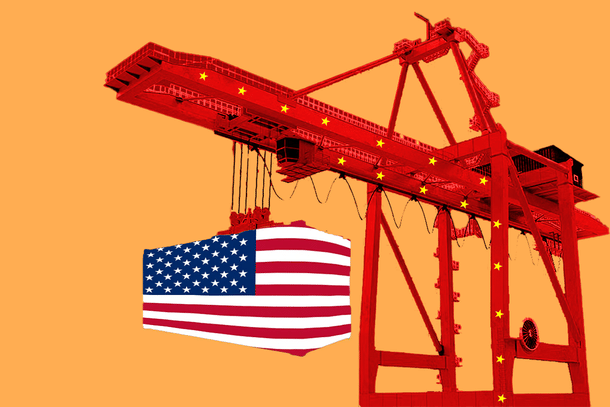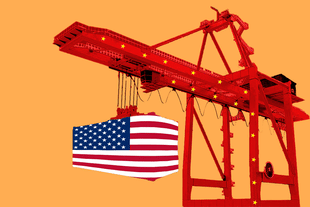Commentary
Crane Clash: US-China Tensions Set To Soar Over Spying Concerns At American Ports
Amit Mishra
Mar 15, 2024, 03:51 PM | Updated 03:51 PM IST
Save & read from anywhere!
Bookmark stories for easy access on any device or the Swarajya app.


The fractious relationship between Washington and Beijing may be on the brink of a significant confrontation, following a congressional investigation into Chinese-built cargo cranes.
The investigation has revealed that these cranes were equipped with communication devices, such as a cellular modem, with no clear purpose of their installation.
Additionally, these components were not part of any contract between US ports and the Chinese crane manufacturer, Shanghai Zhenhua Heavy Industries (ZPMC).
ZPMC, a subsidiary of China Communications Construction Company (CCCC) — one of the main contractors for the the Chinese Communist Party (CCP)’s Belt and Road Initiative, accounts for nearly 80 per cent of the ship-to-shore (STS) cranes in use at US maritime ports.
The committee points out that these devices offer Beijing a possible spying tool hiding in plain sight, allowing it to remotely operate these cranes, thus disrupting the trade flow.
Given the gigantic economic stakes — exceeding $5.4 trillion in economic activity and over 90 per cent of overseas trade passing through its ports — any cyberattack could disrupt not only US military operations, but also vital supplies like food and fuel essential for everyday Americans.
Worried about the rising threat of Chinese cyberattack on US infrastructure, the House Committee had asked ZPMC to answer six questions to learn more about the products and services it offers to the US maritime industry.
Concerns Have Been Building For Years
The ‘spy crane’ probe is not the first time that China and shipping have come under the spotlight in recent years.
In 2021, the Federal Bureau of Investigation (FBI) discovered intelligence gathering equipment on board a vessel delivering ZPMC cranes to the Port of Baltimore.
In fact, Bill Evanina, a former top US counterintelligence official, said, “Cranes can be the new Huawei,” referring to the Chinese telecom giant Huawei, whose equipment have faced international bans over espionage apprehensions.
Since then, top lawmakers in the US Congress have been focusing on China's influence on port infrastructure.
In May 2023, a bill called the 'Port Crane Security and Inspection Act of 2023' was introduced in the House of Representatives that sought to stop foreign cranes from being used in US ports, while also requiring a security review of all existing cranes.
Taking it a step ahead, President Joe Biden signed an executive order on 21 February directing an investment of over $20 billion over the next five years to improve the US port infrastructure, including domestic manufacturing of port cranes.
The funding allocated for port infrastructure will support Paceco Corp, a US subsidiary of the Japanese firm Mitsui, to produce domestic cargo cranes, the White House said.
The timing of the congressional investigation, occurring just a year post the infamous 'Chinese balloon incident', is sure to amplify apprehensions over China's threat to American security.
Yet, the scrutiny on Chinese-built cargo cranes transcends security concerns, delving into economic interests and the urgent call for resilient supply chains.
The inevitable showdown between the world's two largest economies in the shipping industry is inevitable, with the 'spy cranes' probe serving as the beginning of this new phase in US-China strategic competition.
Closer to home, the findings have an important lesson. It's time we reconsider having Chinese-made cranes in our ports, understanding how it affects India's national security and economic independence.





